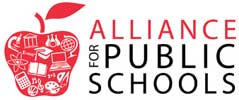In attention grabbing headlines around the country, school districts face a record number of book challenges resulting in bans. During this Banned Books Week, we decided to take a closer look at those stories.
A recent Washington Post story begins, “Jennifer Petersen keeps 73 school books she detests in her basement.” Jennifer Petersen has challenged 71 books in her Virginia school district and has earned the title “serial filer” from the Post. 35 of the books she challenged have been removed from shelves with others voluntarily pulled by the superintendent.
From the Tampa Bay Times, “The topics came up again and again in hundreds of book complaints received by Florida school districts over the last year. Indoctrination. Pedophilia. The LGBTQ+ agenda. Those who submitted the complaints say the books in question can harm children, and they want them removed from school libraries.
But while their movement has grabbed headlines, it may not be widespread. Most of Florida’s 67 school districts didn’t log a single formal complaint about a book. That’s based on a Tampa Bay Times analysis, the most comprehensive review of book complaints across the state.
Of the roughly 1,100 complaints recorded in Florida since July 2022, more than 700 came from two counties — Escambia in the western Panhandle and Clay near Jacksonville. Together the two districts make up less than 3% of the state’s total public school enrollment.
About 600 of the complaints came from two people — a Clay County dad and an Escambia County high school teacher.”
Jennifer Petersen and the two Floridians are not anomalies according to a study by the Washington Post. “School book challenges reached historic highs in America in 2021 and 2022, according to the American Library Association. And just a handful of people are driving those records. A Washington Post analysis of thousands of challenges nationwide found that 60 percent of all challenges in the 2021-2022 school year came from 11 adults, each of whom objected to dozens — sometimes close to 100 — of books in their districts.”
“A stated wish to shield children from sexual content is the main factor animating attempts to remove LGBTQ books, The Post found. The second most common reason cited for pulling LGBTQ texts was an explicit desire to prevent children from reading about lesbian, gay, bisexual, transgender, nonbinary and queer lives.”
A Maine story highlights this common theme where at least 22 challenges with primarily LGBTQ+ themes were filed and escalated to superintendents and school boards in 2022 and 2023.
“About one-third of the community members who filed challenges reported not having read or reviewed the book in its entirety, the Maine Monitor analysis found. The Monitor obtained copies of 19 of the 22 challenges, and reviewed the status of the other three.
In at least two cases, challengers explicitly noted that they relied — at least partially — on material from BookLooks.org, an organization started by a former member of the conservative national advocacy group Moms For Liberty. Although Moms for Liberty does not claim any chapters in Maine, nationally the group has been linked to book challenge efforts.”
Groups like those have led to an increase in state legislation targeting books. The Post reports, “The surge in anti-LGBTQ book challenges comes as Republican-dominated state legislatures are proposing and passing a record-breaking wave of laws and policies that restrict LGBTQ civil liberties, especially in the K-12 setting. At the same time, at least a half-dozen states have enacted laws giving parents more power over which books appear in libraries or circumscribing students’ access to books. And seven states have adopted laws that threaten school librarians with years of imprisonment and tens of thousands of dollars in fines for giving children “obscene” or “harmful” books.”
How can you help defend the First Amendment and push back against this very vocal minority?
The American Library Association has a list of resources and supports on their website. BannedBooksWeek.org posted digital and print resources as well as a calendar of events taking place around the country. PEN America has information on their current lawsuit defending the First Amendment in Florida and resources and reports. Students themselves can play an important roll in advocacy. We must all find ways to advocate for intellectual and educational freedoms to ensure high-quality education for every child.
To easily contact your elected officials about this and other issues, visit our Advocacy Dashboard and click on Find Your Elected Officials.







